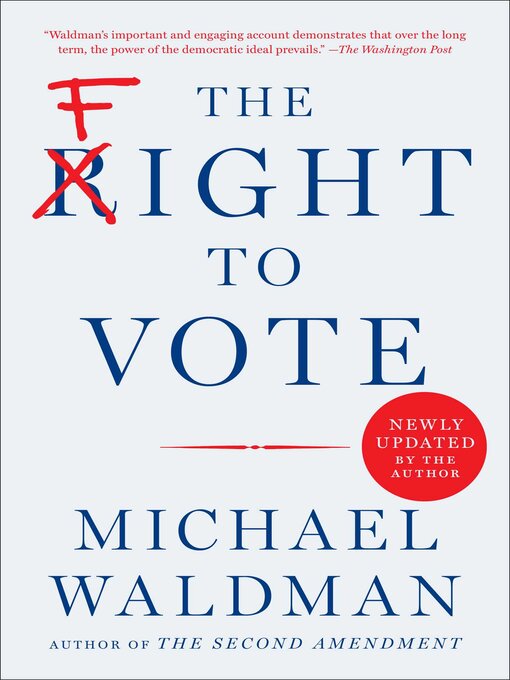
As Rep. Lewis said, and recent events in state legislatures across the country demonstrate, the struggle for the right to vote is not over. In this "important and powerful" (Linda Greenhouse, former New York Times Supreme Court correspondent) book Michael Waldman describes the long struggle to extend the right to vote to all Americans. From the writing of the Constitution, and at every step along the way, as disenfranchised Americans sought this right, others have fought to stop them. Waldman traces this history from the Founders' debates to today's many restrictions: gerrymandering; voter ID laws; the flood of dark money released by conservative organizations; and the concerted effort in many state legislatures after the 2020 election to enact new limitations on voting.
Despite the pandemic, the 2020 election had the highest turnout since 1900. In this updated edition, Waldman describes the nationwide effort that made this possible. He offers new insights into how Donald Trump's false claims of fraud—"the Big Lie"—led to the January 6 insurrection and the fights over voting laws that followed one of the most dramatic chapters in the story of American democracy.
As Waldman shows, this fight, sometimes vicious, has always been at the center of American politics because it determines the outcome of the struggle for power. The Fight to Vote is "an engaging, concise history...offering many useful reforms that advocates on both sides of the aisle should consider" (The Wall Street Journal).
-
Creators
-
Publisher
-
Release date
February 23, 2016 -
Formats
-
Kindle Book
-
OverDrive Read
- ISBN: 9781501116506
- File size: 1644 KB
-
EPUB ebook
- ISBN: 9781501116506
- File size: 2402 KB
-
-
Accessibility
-
Languages
- English
-
Reviews

Loading
Formats
- Kindle Book
- OverDrive Read
- EPUB ebook
subjects
Languages
- English
Why is availability limited?
×Availability can change throughout the month based on the library's budget. You can still place a hold on the title, and your hold will be automatically filled as soon as the title is available again.
The Kindle Book format for this title is not supported on:
×Read-along ebook
×The OverDrive Read format of this ebook has professional narration that plays while you read in your browser. Learn more here.